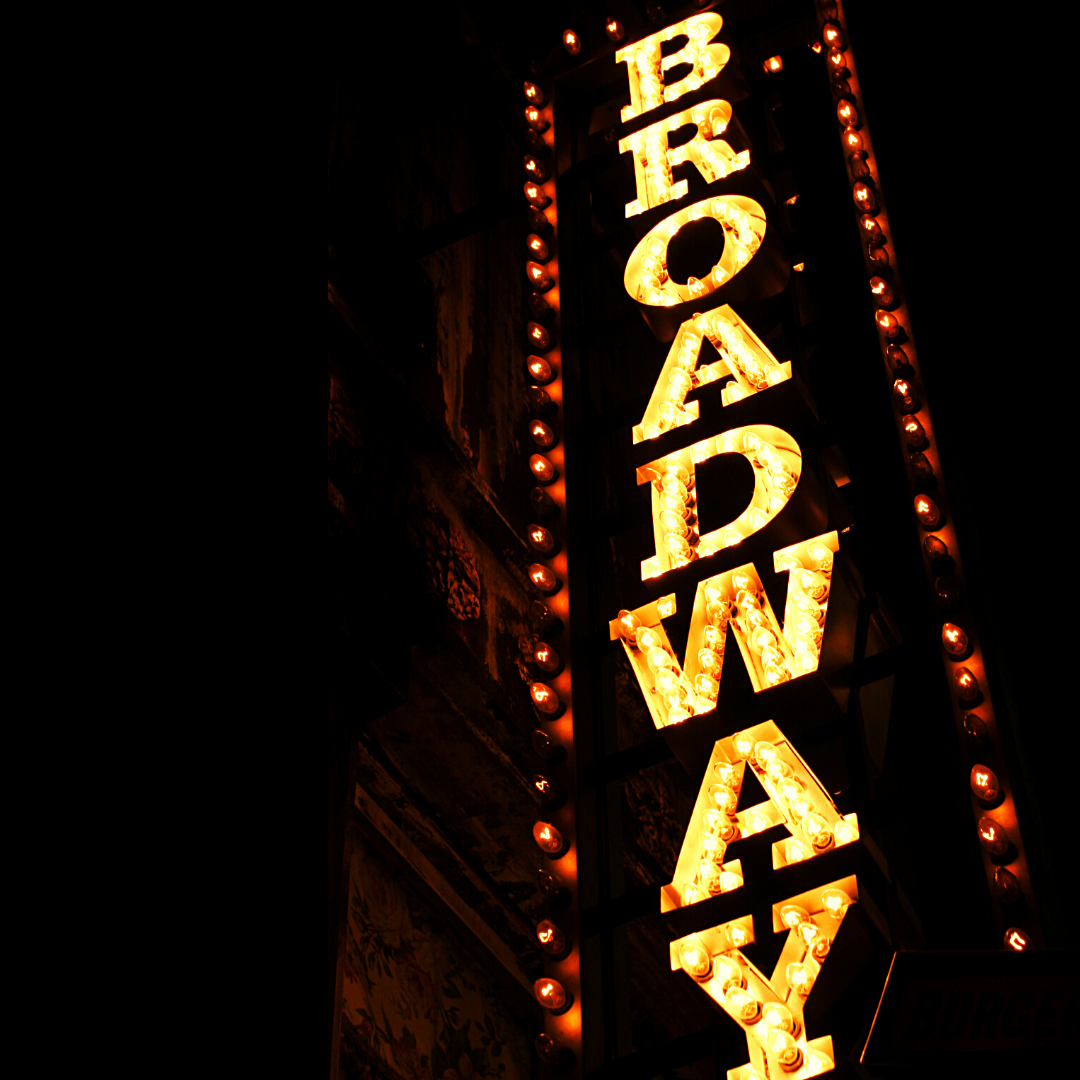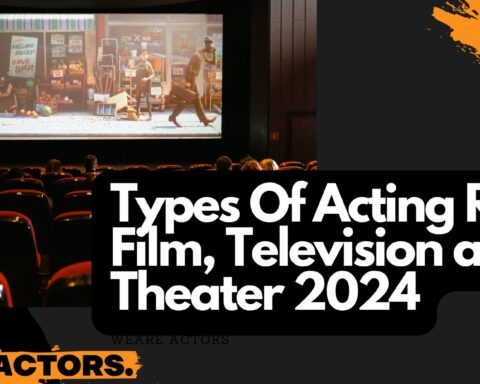How to Brand Yourself As An Actor
Okay, I know, I KNOW – half of you have already rolled your eyes at the title of this article. Yes, the word ‘brand,’ can easily be dismayed in the acting world. We are human beings, not companies or businesses. Oh wait, yes, we are.
That’s right, whether you like it or not as an actor you are a business. Therefore, you need to treat yourself as such and work on all of the marketing, educating, and you guessed it, branding required as if you were a multimillionaire dollar corporation. …Thank me once you are 😉
Type Casting: To cast (a performer) based on personality, background, or physical appearance.
Every actor has had to go through the initial type casting phase prior to venturing off into different genres. Even top actors and household names such as Mathew McConaughey, Anne Hathaway, Amanda Seyfried, and Reese Witherspoon have all gone through this.
Mathew was one of the top leading males in romantic comedies. In order to break into dramas/ action films, he decided to take a hiatus from his extremely high paying offers to play the love interest yet again. He didn’t work for nearly two years until he proved to Hollywood his need for change when he finally made his comeback with Dallas Buyers Club.Annie H made her global name debut with Disney’s Princess Diaries and Ella Enchanted. The favourite princess figure began showcasing her raw depths and began her journey into dramas with Rachel Getting Married.Yes, Amanda Seyfried was type casted as the dumb blond in Mean Girls when she portrayed the ever so loveable Karen Smith. She quickly changed the game with her performances in Red Riding Hood, Goneand Les Miserables.And we can never forget how much Reese Witherspoon has come from taking on Harvard as Elle Woods to starting her own production company where she adapts novels, creating the gritty and not so glamorous. Enter Wild.
The point of that tangent is to explain that your type cast isn’t necessarily a bad thing. Play into your stereotype not against it. Showcase your strong suits and start by defining how casting will truly see you.
In order to figure out what characters you would be casted for and the roles you most likely would audition for, first things first.
Who are you?
I have worked in casting and casted many of my own projects. Let me tell you when a casting call is put out for a specific type, and you have to sometimes see one hundred of the same ‘brand’ of that type. The actors that stick out the most are the ones who know themselves by displaying confidence in their specific traits that set them apart from the pack.
So let’s get started. Grab a piece of paper and a pen. List at least ten qualities about yourself. Are you funny? Athletic? Tall? Charismatic?
Now pick three of the ten and build on them. If you wrote that you are funny, expand on comedic aspects that interest you, or that you could see yourself portraying. If you are athletic or a musician, what sports or instruments are you an expert at to play on TV? If you have that sweet charisma & enjoy making others feel loved – perhaps Hallmark and Lifetime will be your go to networks.
In your resume section under ‘special skills,’ this is what I am talking about. Do not list a special skill if you are not 110% confident you can perform this on set. Remember that one time you were dared to try juggling at that one college party never to be talked about again? Most likely you are not at expert juggler. Be real, and be true. There is no point in lying, as casting will find out sooner than later and that dishonesty could cost you to never be brought back into that room again.
Back to branding.
When I attended acting school in Vancouver, one exercise they had us conduct, was to go out into public and ask people on the street to describe us. Yes, it was terrifying, but extremely helpful to understand how a stranger perceive you. Because it will be in fact strangers who are the audience members watching your performances. I know we are still in the era of a Panorama, but when this is safe to do so sans masks, I would highly recommend this experiment. Grab a friend and go get em together. Help these random strangers out by suggesting they give you at least three words to describe yourself and encourage them not to hold back.
Compile your information and take notes. Once you have a solid list, circle common words or phrases. Highlight any surprising feedback you received and start re-listing your top attributes.
Next, it’s time to make your personal slate statement. This is my favourite as it requires you to dig deep within yourself while also using your new-found information. This character oxymoron should be two opposing words that summarize your overall ‘brand.’
Some examples:
Corporate Chaos
Dangerous Hero
Vulnerable Power
Sweet Offender
Regal Culprit
Professional Insanity
Broken Sophistication
At this stage, you should have a clear idea of the inner qualities that define your unique actor. Now it’s time to start researching and educating yourself on the cast-able roles you can believably play. If you look like a badass who has an athletic build – characters that are cops, lawyers, detectives, bad guys, might be your niche of the market. This was my case. I went through a blond stage (Yes, all photos are locked away in the archives) but was advised at the time by my agents and coaches to look more ‘warmer,’ so I would be considered for ‘softer roles.’
…I stand 5’10, was an athlete my whole life, am naturally a brunette, and have that defined German jawline that isn’t exactly girl next door. Maybe girl next door who is secretly spying on you for the FBI.
Casting even told me in one audition, that I looked confusing.
Play into your stereotype.
To support my brand, I sought out stunt and combat training in order to better understand fighting physicality on screen. I also got my PAL (Possession and Acquisition Licence) which meant I could legally handle a firearm.
All of this will assist you on set when you meet your stunt coordinator or weapons wrangler, and inform them of your due diligence training. Your agent and casting will also love that you have the skills to support the role breakdowns they are submitting you for.
More examples of enhancing what you got:
1) Accents– Whether you are blond with blue eyes, or have a darker complexion with a beard and tattoos, you should have at least 1 -2 accents under your belt. As a Canadian actor, Standard American was the first accent we had to adapt as many American projects came to Canada all the time to film. Also, considering the film industry is pre-dominantly US based, knowing how to talk like an American will only benefit you.
Based on your genetic muscularity, it is easier to learn the accent of your ancestry. Meaning if you come from an Indian background, learn that dialect. If you look Irish or Scottish, rock the Brogue. If you look as though you could play in the regal world of the Elizabethan or Regency Era, learn that British Accent. Speaking another language is also a plus, as an accent already comes with it! Get good at this accent, practise this accent, and when you get an audition that requires this accent, depending on your level of expertise – get coaching.
2) Talk the Talk. If your type cast is a doctor, lawyer, CEO of a Hedge Fund, learn the lingo. Receiving an audition the night before (which is very common) is already stressful enough. Add in unfamiliar verbiage that you not only have to define, but you have to speak it like its apart of your everyday life. If you have relatives or friends in College or University, what are they studying? Ask to borrow their textbooks and read the information out loud. Go to the library and rent finance books. If you don’t know how to pronounce something, refer to google. Watch TV with subtitles and pause on any words or phrases that seem unfamiliar.Casting can spot if you are not confident behind what you are saying. Therefore, why would they cast you to guest star on Grey’s Anatomy if you can’t even get past Fibrodysplasia Ossificans Proggresiva?
3) People Watch– Again, do it safely and six feet apart. And if you can’t do this in public, do it from the safety of your own home a la television. If you are able to go back out into the wild, watch the mannerisms of passersby. How do you see business professionals walk? Talk? What are they carrying? Are they in a hurry? What part of their body are they leading with? The next time you are at the doctor or in a hospital (I hope not soon unless it’s for your annual check-up) watch the doctors and nurses. Apply the same studying as above. Watch TV Shows on silent. Only focus on how each actor is acting physically. What happens before they reach for their gun? Or face their spouse? Or meet friends for drinks? Start noticing certain mannerisms that are common amongst different characters. Watch, learn, and match.
4) Scene Study– Research different scenes or monologues that best suit your brand. Make sure these scenes specifically display the abilities you want casting to see. Choose a piece that tells the story of you teaching a class on Space and the Galaxy, or plotting an attack on the bad guys, or making a friend feel better after a bad breakup. These themes will show distinctly your range and the obvious strengths you bring into the room.
Branding doesn’t have to define you. The goal for most actors is to have the luxury to play any character from all genres of performance. Which is our job to do. However, you have to start by showing the industry your strongest, most confident self. The more you discover about yourself, the more of an authentic part you will be able to portray. After all, bringing voice to people and justice to story is exactly your duty as an actor.
So duly take note, and get after it.
Written by Therés Amee







